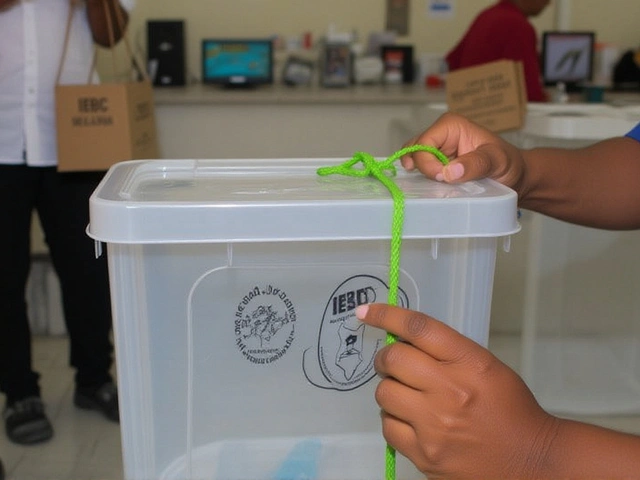City Power’s New Strategy to Protect Johannesburg's Electrical Grid
Starting this Monday, City Power of Johannesburg will begin enforcing a series of peak-time outages throughout the city. This move aims to preemptively tackle the urgent issue of potential grid collapse due to unmanageable levels of electricity consumption. The impact of such measures will be felt primarily in high-density regions with significant electricity demands, which are at risk of equipment overloads.
Understanding the Load Reduction Measures
City Power has outlined its strategic action plan aimed at mitigating the risk of a full grid collapse. The scheduled outages will happen during the high consumption hours of 6am to 10am and 4pm to 10pm. These timeframes have been identified as periods when electrical load peaks substantially, putting immense pressure on the infrastructure.
During these periods, individuals living in densely populated areas should expect routine power cuts. These areas are labeled high-risk due to their substantial electricity use. The objective is to manage and limit energy consumption to prevent overloading of power transmission equipment.
Additionally, City Power plans to reinforce the use of ripple relay systems. These systems are crucial for remotely controlling the electricity consumption of geysers in residential properties—particularly in systems under threat from overuse. The use of ripple relay systems provides City Power a means to manage household electricity use in a more focused manner, optimizing the power supply during critical times of the day.
Efforts to Promote Energy Conservation
Aside from direct intervention measures like load reduction and ripple relay systems, City Power has been actively promoting energy conservation among residents. Recent campaigns have strongly emphasized the benefits of reducing energy use, particularly during peak hours. The initiative aims to foster a culture of energy efficiency in Johannesburg, with residents being encouraged to switch off non-essential appliances, use energy-efficient devices, and adopt other electric-saving measures.
Isaac Mangena, the spokesperson for City Power, highlighted the importance of these measures during a recent press conference. Mangena emphasized the necessity of load reduction to shield the city's electrical grid from the severe consequences of overloading. He stated that while these measures may pose inconvenience, the larger goal of preserving the integrity of the power infrastructure is of paramount importance. According to Mangena, ‘The aim is not only to prevent equipment overload but also to ensure a stable and reliable energy supply for everyone.’
Looking at the Broader Impact
The scheduled power cuts and other control mechanisms are expected to have a range of effects on everyday life in Johannesburg. Businesses operating in affected areas may need to adjust work hours or find alternative power solutions during the designated outage periods. Residential life will also be significantly impacted, as families will have to adapt to these new times without electricity during peak hours.
It’s not uncommon for power grids to reach critical levels under excessive demand. Countries worldwide are exploring various methods to handle energy scarcity and protect infrastructure. While load reduction is among the more drastic measures, it is a necessary step to avoid the greater calamity of a complete grid failure, which would have far-reaching consequences for the city's economy and daily functioning.
Residents are urged to prepare for these outages by having backup lighting, like battery-operated lanterns or candles, keeping essential devices charged, and planning household activities around the outlined outage periods. These simple steps can help mitigate the inconvenience caused by the temporary power cuts.
Ripple Relay Systems: How They Work
Ripple relay systems have long been a part of City Power’s toolkit against escalating power consumption. These systems allow for remote control over high-consumption household devices like water heaters (geysers). When activated, the ripple relay can turn off these devices during peak consumption periods, significantly reducing the overall load on the grid.
Employing ripple relay systems more aggressively during this phase means specific household appliances will be managed more tightly. The objective here is to ensure that certain non-essential high-consumption devices don't add to the burden during critical times. The use of these systems thus represents a more nuanced and targeted approach to managing electricity consumption across the city.
The Role of Residents in Energy Conservation
The power cuts and intensified use of remote control systems underline a pressing need: cooperation from the city's residents. Education and awareness campaigns aim to help residents understand their roles in the broader energy conservation effort. By making small changes in their daily routines, residents can collectively make a significant impact on overall electricity consumption.
Simple actions such as turning off lights when not in use, using energy-efficient appliances, and being mindful of electricity use during peak hours can contribute tremendously. Schools, community centers, and local governments are expected to play a role in these educational efforts, ensuring that every household is aware of both the importance and methods of energy conservation.
As the peak-time outages begin, it will be essential to monitor their impact and effectiveness closely. Data collected during initial implementation phases will offer insights into the real-time effectiveness of these measures and help City Power make necessary adjustments. Communication channels between City Power and residents will also play a crucial role, allowing for feedback and rapid response to any unforeseen issues.
A Glimpse into the Future
Looking ahead, Johannesburg's energy concerns are part of a much larger conversation about sustainable energy use and infrastructure development. As population growth and urbanization continue, energy demands will only increase. Therefore, the current measures by City Power can also be seen as part of a broader strategy for long-term sustainability and resilience.
Investments in renewable energy sources, technological advancements in grid management, and enhanced energy storage solutions are all essential components of a future-ready power infrastructure. Johannesburg, like many cities globally, must stay ahead of these challenges by adopting both immediate and long-range strategies.
In conclusion, while the imminent implementation of peak-time power cuts highlights immediate concerns, it also serves as a reminder of the ongoing challenges in urban energy management. The cooperation of residents, coupled with the strategic efforts by City Power, underscores a collective journey towards a stable, sustainable, and efficient electricity supply system.







Comments
Joshua Johnston
June 13, 2024 AT 12:22 PMThis is just band-aid medicine for a broken system. We’ve been ignoring infrastructure investment for decades. Now we’re punishing people for using the power we told them to use. Classic.
Kerry Keane
June 14, 2024 AT 01:05 AMi just charged my phone last night and kept a flashlight by the bed. its gonna be fine. we got this
Elliott martin
June 14, 2024 AT 20:16 PMi wonder how many people actually know how ripple relays work or if they’re even notified when their geyser gets shut off. no one talks about that part
Shelby Hale
June 15, 2024 AT 12:52 PMso let me get this straight... we’re letting the grid collapse because we won’t tax the rich or regulate corporations that run massive AC units 24/7? and now we’re telling moms to buy candles? 😭🕯️
Jeffrey Frey
June 17, 2024 AT 11:56 AMthis is what happens when you let bureaucrats run utilities. they don’t care about your life. they care about their spreadsheets. they’ll shut off your water heater while your kid’s taking a shower and call it ‘load management’.
Jeremy Ramsey
June 18, 2024 AT 07:53 AMyo i lived in johannesburg for a year. the vibe here is chill but the grid? absolute chaos. they’ve been dancing on the edge of collapse for years. this is just the moment they finally stepped back. respect the hustle.
Henry Huynh
June 20, 2024 AT 01:29 AMpeak hours are just when people get home from work and turn everything on. why not stagger shifts? why not make it a thing? like work from 9 to 5 instead of 7 to 3
Don McBrien
June 21, 2024 AT 09:18 AMyou know what helps? community. neighbors sharing generators. people checking on elders. we’ve forgotten how to take care of each other. this isn’t just about power. it’s about connection.
Ed Thompson
June 22, 2024 AT 23:05 PMwe need a grid 2.0. decentralized microgrids. solar + battery + smart load balancing. this ripple relay thing is like using a typewriter when we’ve got AI. we’re stuck in 2003 while the world’s already on 2025
Sara Reese
June 23, 2024 AT 05:55 AMyou think this is bad? wait till they start rationing water next. everyone’s so quick to blame the poor. but who really uses 90% of the power? corporations. billionaires. power companies. but nooo... we cut grandma’s geyser. classic victim-blaming.
Richie Cristim
June 25, 2024 AT 03:17 AMwhy dont they just turn off the malls and offices first before my house. i pay taxes too. why me. why always me
Thomas Rosser
June 26, 2024 AT 07:59 AMthis is all part of the globalist energy control agenda. they want to reduce population through blackouts. watch how fast they install surveillance cameras in every streetlight after this. 👁️🗨️
Shreyas Wagh
June 26, 2024 AT 19:16 PMthe grid is a mirror. it reflects our collective greed. we want cool homes, fast internet, 24/7 AC, and cheap power. but we don’t want to pay for it. so now we dance in the dark. ironic, no?